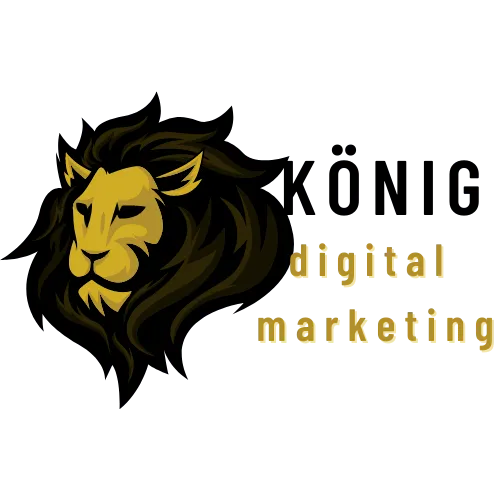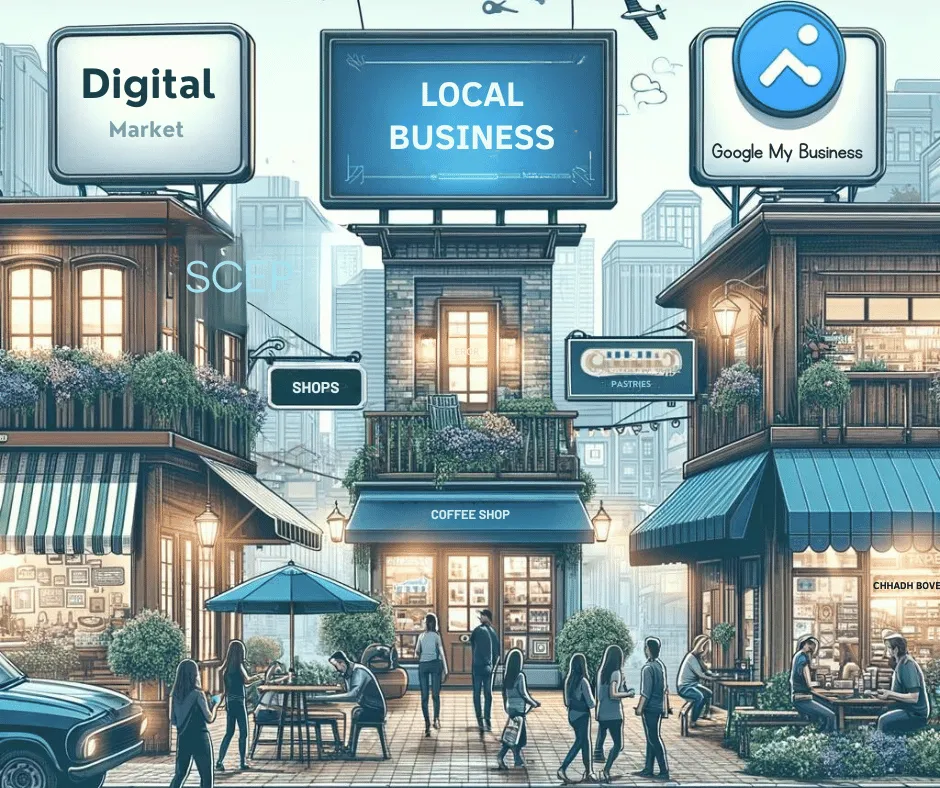

GTM Engineering, Marketing Automation & AI
By investing in marketing and automation software, you can streamline your customer acquisition process, nurture leads, and unlock hidden revenue through database re-activation. These tools can help you target the right customers, at the right time, with the right message, increasing the chances of converting them into paying customers.

Unlock the Secrets: 5 Unbeatable Digital Marketing Strategies for Local Businesses Today!
Unlock the Secrets: 5 Unbeatable Digital Marketing Strategies for Local Businesses Today!
In today's digital age, local businesses face fierce competition not just from their neighbors, but from companies across the globe.
Standing out in such a crowded marketplace requires more than just a quality product or service, it demands a strategic approach to digital marketing that connects with your target audience on a deeper level.
This comprehensive guide unveils five unbeatable digital marketing strategies that are tailored for local businesses aiming to elevate their online presence, engage customers, and boost sales. Let's dive into the secrets that can set your business apart in the digital realm.
1. Leverage Local SEO to Your Advantage
Local SEO is the cornerstone of any successful digital marketing strategy for local businesses. It's about optimizing your online presence to appear in local search results for your area, which is crucial for attracting customers who are searching for services or products like yours.
Optimize Your Google My Business Listing
The first step in mastering local SEO is to claim and optimize your Google My Business (GMB) listing. Ensure your business information is accurate, including your address, phone number, and hours of operation. Add high-quality photos of your business, products, or services to enhance your listing's appeal.
Target Local Keywords
Integrate local keywords into your website's content, meta titles, and descriptions. Keywords like "best coffee shop in [City Name]" or "[Service] near me" can significantly improve your visibility in local search results.
Collect and Respond to Reviews
Encourage your satisfied customers to leave positive reviews on your GMB listing and other review sites. Respond to all reviews, positive or negative, to show that you value customer feedback and are committed to improving your service.
2. Engage with Social Media Marketing
Social media platforms offer powerful tools for local businesses to connect with their community. By engaging with your audience on social media, you can build brand awareness, foster relationships, and drive traffic to your website.
Choose the Right Platforms
Not all social media platforms are suitable for every business. Identify where your target audience spends their time and focus your efforts there. For many local businesses, Facebook, Instagram, and Twitter are excellent starting points.
Create Valuable Content
Share content that adds value to your audience's lives. This could be anything from how-to guides, local news, behind-the-scenes looks at your business, or special promotions. Use a mix of post types, including images, videos, and stories, to keep your audience engaged.
Engage with Your Community
Social media is a two-way street. Don't just post content—engage with your followers by responding to comments, messages, and participating in local online communities. This helps build a loyal customer base that feels connected to your business.
3. Invest in Content Marketing
Content marketing is about creating and sharing valuable content to attract and retain a clearly defined audience. For local businesses, this means creating content that resonates with your local community.
Start a Blog
A blog is a great way to share helpful information, company news, and industry insights with your audience. Each blog post is an opportunity to rank for relevant local keywords, driving more traffic to your website.
Create Local Guides
Create content that serves your local community, such as guides to local attractions, events, or businesses. This not only positions you as a local authority but also improves your visibility in local search results.
Use Local Success Stories
Share success stories of your customers or your involvement in local events. This creates emotional engagement and demonstrates your commitment to the community.
4. Maximize Email Marketing
Email marketing remains one of the most effective digital marketing strategies for keeping your customers engaged and driving sales.
Build Your Email List
Offer something of value in exchange for email sign-ups, such as a discount code or a free guide. Make sure to comply with email marketing laws and regulations.
Segment Your List
Segment your email list based on customer behavior, preferences, or location to send more personalized and relevant emails. This increases open rates, click-through rates, and conversions.
Send Regular Updates
Keep your business top-of-mind with regular updates, exclusive offers, and valuable content. Use a friendly, conversational tone to make your emails feel personal.
5. Utilize Pay-Per-Click (PPC) Advertising
PPC advertising can drive immediate traffic to your website from people searching for your products or services. It's especially effective for local businesses looking to target specific geographic areas.
Target Local Keywords
Use local keywords in your PPC campaigns to ensure your ads are shown to people searching for your products or services in your area.
Use Geo-Targeting
Geo-targeting allows you to show your ads only to users in specific locations, making your PPC campaigns more cost-effective and targeted.
Optimize for Mobile
With the majority of local searches happening on mobile devices, ensure your website and ads are optimized for mobile. This includes having a mobile-friendly website design and using mobile-specific ad formats.
Let's delve into more detailed examples for measuring the success of digital marketing efforts for a local business:
Example 1: Measuring Website Traffic
Objective: Increase local website traffic by 20% in 6 months.
Strategy: Optimize your website for local SEO by including local keywords, ensuring your Google My Business listing is accurate, and creating content relevant to your local community.
Measurement: Use Google Analytics to track the number of visitors to your site, focusing on those coming from your local area. Compare monthly visits to see if there's an upward trend towards your 20% increase goal.
Example 2: Improving Search Engine Rankings
Objective: Rank in the top 3 for "best coffee shop in [City Name]" within 3 months.
Strategy: Optimize on-page SEO by including the target keyword in your title tags, meta descriptions, and throughout your website's content. Also, build local backlinks by getting listed in local directories and partnering with nearby businesses.
Measurement: Use SEO tools like SEMrush or Ahrefs to monitor your keyword rankings. Check the progress weekly to see if your website is moving up in the search results for the targeted keyword.
Example 3: Boosting Social Media Engagement
Objective: Increase engagement on Instagram posts by 30% over the next quarter.
Strategy: Post more frequently about local events or promotions, use local hashtags, and engage with other local accounts. Also, run a contest that encourages users to comment on your posts or share them with their followers.
Measurement: Use Instagram's built-in analytics to track likes, comments, shares, and overall engagement rates on your posts. Compare these metrics month-over-month to gauge the effectiveness of your engagement strategies.
Example 4: Enhancing Email Open and Click-Through Rates
Objective: Improve email open rates to 25% and click-through rates to 5% in the next 6 months.
Strategy: Segment your email list to send more targeted and relevant content. Personalize the email subject lines and content to make them more appealing to your subscribers.
Measurement: Use your email marketing platform's analytics to track open and click-through rates for each campaign. Experiment with different subject lines, content formats, and sending times to find what works best for your audience.
Example 5: Increasing Conversion Rates
Objective: Achieve a 10% conversion rate from PPC ads within 4 months.
Strategy: Use geo-targeting for your PPC ads to reach potential customers in your area. Optimize your landing pages to ensure they're compelling and directly relevant to the ad's offer.
Measurement: Track the number of conversions from your PPC ads using Google Ads and Google Analytics. Analyze the conversion rate by dividing the number of conversions by the total number of ad clicks and multiplying by 100 to get the percentage.
By setting clear objectives, implementing focused strategies, and regularly measuring outcomes, local businesses can effectively track and improve the success of their digital marketing efforts, leading to increased visibility, engagement, and sales.
Conclusion
Digital marketing offers local businesses an incredible opportunity to connect with their target audience in a meaningful way.
By leveraging local SEO, engaging with social media, investing in content marketing, maximizing email marketing, and utilizing PPC advertising, you can create a comprehensive digital marketing strategy that drives results.
Remember, the key to success in digital marketing is consistency and engagement. Stay committed to your strategy, continually optimize based on performance, and always keep your audience's needs at the forefront of your efforts.
With these unbeatable strategies, your local business is well on its way to standing out in the digital marketplace, contact us for hands on help!
FAQ: Unlocking Digital Marketing Strategies for Local Businesses
1. What is Local SEO and why is it important for my business?
Local SEO refers to the process of optimizing your online presence to attract more business from relevant local searches. It's important because it helps your business appear in search results when potential customers are looking for products or services like yours in your area, thereby increasing visibility and the likelihood of attracting in-store visits.
2. How do I choose the right social media platforms for my local business?
Choosing the right social media platforms depends on where your target audience spends their time. Research your audience to understand which platforms they use most frequently. For many local businesses, starting with Facebook, Instagram, and Twitter is beneficial due to their large user bases and community engagement features.
3. Can content marketing really help my local business grow?
Yes, content marketing can significantly help your local business grow by establishing you as a local authority, improving your website's SEO, and engaging with your community. Sharing relevant, valuable content attracts and retains a clearly defined audience, ultimately driving profitable customer action.
4. What should I offer to encourage email sign-ups?
Offer something of value that's relevant to your audience, such as a discount, a free trial, exclusive access to sales, or informative content like a guide or eBook. The key is to provide an incentive that is compelling enough for visitors to provide their email address.
5. How often should I send emails to my subscribers?
The frequency of emails should be balanced to keep subscribers informed without overwhelming them. Start with a monthly newsletter and adjust based on engagement rates and subscriber feedback. Key is to maintain regular communication without compromising on the quality of content.
6. What are the benefits of PPC advertising for local businesses?
PPC advertising offers immediate visibility in search results, allowing you to target specific geographic areas with your ads. It's particularly effective for local businesses looking to attract customers who are ready to purchase or need services immediately, providing a high return on investment.
7. How can I make my PPC ads more effective?
To make your PPC ads more effective, use local keywords, take advantage of geo-targeting, create compelling ad copy, and ensure your landing pages are optimized for conversion. Also, regularly review your ad performance to make adjustments as needed.
8. Why is responding to online reviews important?
Responding to online reviews, both positive and negative, shows that you value customer feedback and are committed to improving your service. It enhances your business's reputation and can influence potential customers' perceptions, making them more likely to choose your business.
9. How can I create content that resonates with my local community?
Create content that is relevant to your local community by covering local events, highlighting local success stories, or providing guides to local attractions. This not only engages your local audience but also improves your visibility in local search results.
10. What is the best way to measure the success of my digital marketing efforts?
Measure the success of your digital marketing efforts by tracking key performance indicators (KPIs) such as website traffic, search engine rankings, social media engagement, email open and click-through rates, and conversion rates.
Use analytics tools to monitor these metrics over time and adjust your strategies based on the data collected.
Transform Your Business with Smart Marketing Automation Software...
Konig Digital, LLC
Address: 7903 Cole Ave, Takoma Park, MD 20912, United States
Email: [email protected]
Phone No: +1 (240) 202-2609
Hours:
Weekdays – 8 AM to 5 PM
Weekends- OFF

2025 All rights Reserved | Sitemap






